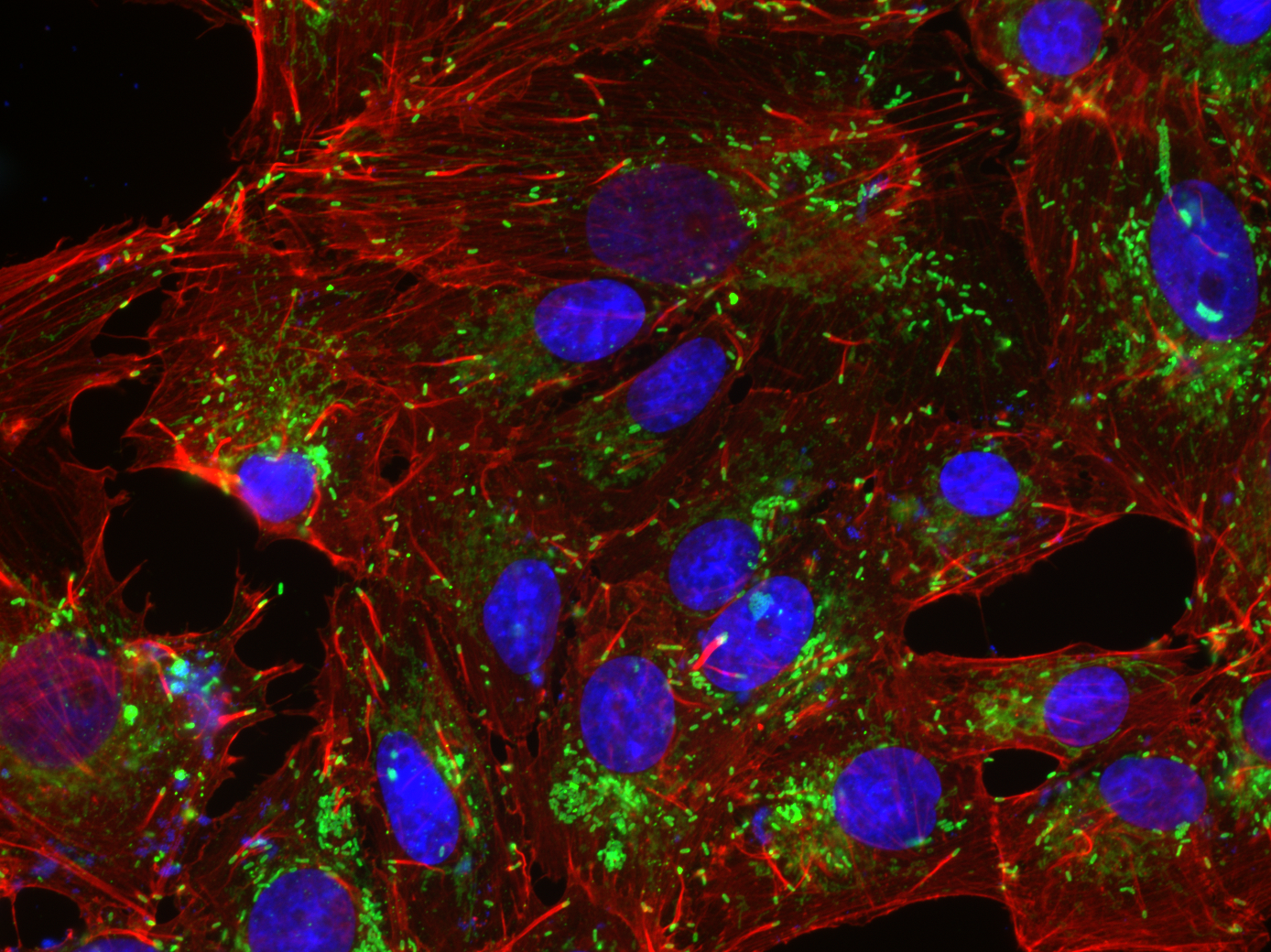Research
Our Research
The Immune Sensing & Signaling Dynamics group focus on host-microbe interactions and cancer.
The environment, microbiota, infection, diet, stress, and the body’s metabolism shape complex processes in health and disease. However, our current understanding of the molecular mechanisms and pathways involved in these processes is still incomplete. Cells are constantly exposed to changes in their microenvironment and have to continuously monitor and adapt to respond to such insults and alterations that might profoundly impact their homeostasis. Multiple cellular sensors have been shown to respond to such insults, including the Aryl Hydrocarbon Receptor (AHR).
The AHR
The AHR is known to modulate processes highly relevant to cellular, tissue, and organism development, maintenance, and homeostasis. Its regulation and functions have been linked to diverse immune responses, resistance to infection, tissue regeneration, xenobiotic metabolism, as well as to different pathological conditions, such as inflammatory disorders and cancer2-6. Furthermore, modulation of the AHR pathway in response to a perturbation of cellular and tissue homeostasis profoundly impacts therapy in diseases such as cancer and infectious disease.

In the ImmunoHUB ERA Chair laboratory (Immune Sensing and Infection Dynamics), we aim to study the role of the AHR as a dynamic and key sensor of the microenvironment and homeostasis, capable of fine-tuning different cellular responses in a timely and controlled manner, tailored to the nature and extent of the insult, and to the cellular and tissue context. With a focus on host- microbe interactions and cancer, the main research objectives are:
- Evaluate how the AHR senses and shapes the microenvironment, and how it modulates different cellular and tissue responses.
- Dissect the AHR intracellular network in different microenvironments and its impact on AHR- elicited responses.
- Assess how AHR modulation impacts drug therapy efficacy.